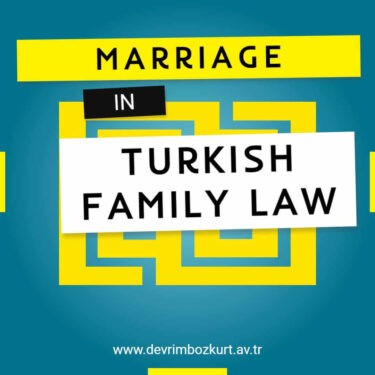Marriage In Turkish Family Law
In General Marriage, in legal terms, is a form of contract in which two perons of different sex have agreed to settee a permenant family union before an authorised officer. Following marriage, parties are called husband and wife. Conditions required for a valid contract such as mutual the agreement of the parties are applied for a valid marriage. Yet, as result of being considered as the smallest cell of society by constitution, the marriage and its conditions are specifically regulated in the Turkish Civil Code (hereafter T.Civ.C.). Conditions for a Valid Marriage Legal Barriers To Marry are as followed: Capacity to marry: A person must have completed the minimum age of 17 in order to be to be reached...
Detaylar







